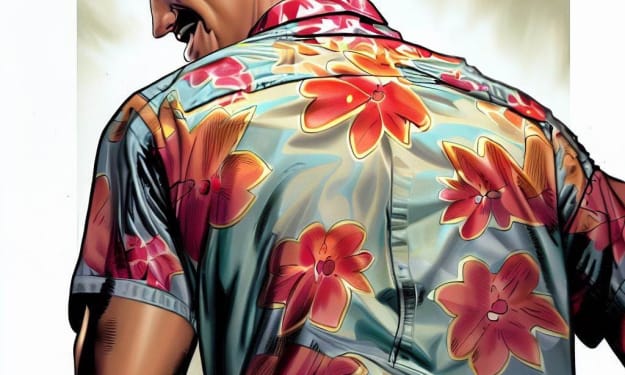Comic books can change the world?
Comic books have been around for almost a century, and in that time, they have become a force to be reckoned with in the world of popular culture.

Comic books have been around for almost a century, and in that time, they have become a force to be reckoned with in the world of popular culture. For many people, comic books provide an escape from the monotony of everyday life, transporting readers to worlds filled with superheroes, villains, and epic battles. However, comic books are more than just entertainment; they have the power to change the world.
Throughout history, comic books have been used to tackle social issues and promote change. In the 1950s and 60s, for example, comic books were at the forefront of the civil rights movement. Marvel Comics, in particular, was known for creating characters who broke racial barriers. The X-Men, for example, were a diverse group of mutants who fought against discrimination and prejudice. The character of Black Panther was the first black superhero to appear in mainstream comics, and he was a symbol of black pride and empowerment.
During the AIDS epidemic in the 1980s and 90s, comic books became a platform for raising awareness about the disease. In 1987, Marvel Comics released a one-shot comic book called "The New Mutants #45", which featured a character named Karma, who was infected with HIV. The comic book was praised for its sensitive portrayal of the disease and helped to break down stigma and misinformation surrounding HIV/AIDS.
In recent years, comic books have continued to promote social change and tackle complex issues. The graphic novel "Persepolis" by Marjane Satrapi, for example, tells the story of a young girl growing up in Iran during the Islamic Revolution. The book addresses themes such as religion, politics, and gender inequality, and has been credited with helping to raise awareness about the issues faced by Iranian women.
Another example is "March", a graphic novel trilogy written by Congressman John Lewis, which tells the story of his experiences during the civil rights movement. The books have been praised for their powerful storytelling and have helped to bring the struggles of the civil rights movement to a new generation of readers.
Comic books also have the power to inspire and empower readers. Superheroes, in particular, are often seen as symbols of hope and courage. The character of Superman, for example, has been a source of inspiration for generations of readers. His unwavering belief in truth, justice, and the American way has made him a beloved figure in popular culture.
However, comic books are not without their controversies. In recent years, there has been a debate over the representation of women in comic books, with some arguing that female characters are often sexualized and objectified. Others have criticized comic books for perpetuating harmful stereotypes of minority groups.
Despite these criticisms, there is no denying the impact that comic books have had on popular culture and society as a whole. They have the power to entertain, inspire, and promote change. From promoting civil rights and raising awareness about social issues to inspiring readers with tales of heroism and courage, comic books have the ability to change the world.
Moreover, comic books have also become a billion-dollar industry with millions of fans worldwide. This has led to the creation of comic book conventions such as San Diego Comic-Con, which draws in thousands of fans every year. The conventions provide a venue for fans to meet their favorite writers and artists, purchase comic books, and meet other fans.
Furthermore, comic books have also become the basis for blockbuster movies and television shows. The Marvel Cinematic Universe, for example, has become a global phenomenon and has grossed billions of dollars at the box office. This shows the immense impact that comic books have had on popular culture and how they continue to influence it.
In conclusion, comic books have come a long way since their inception and have had a significant impact on popular culture and society. They have been used as a tool for promoting social change, raising awareness about social issues, and inspiring readers with tales of heroism and courage. As comic book culture continues to expand, it is likely that they will continue to play a significant role in shaping popular culture and inspiring people around the world.
About the Creator
Goran Milijakic
Hailing from the beautiful Ireland, I relocated to the United States to pursue my passion for cultural enrichment. Immersed in various art forms from a young age, I have now become an avid enthusiast of all things culture-related.






Comments
There are no comments for this story
Be the first to respond and start the conversation.